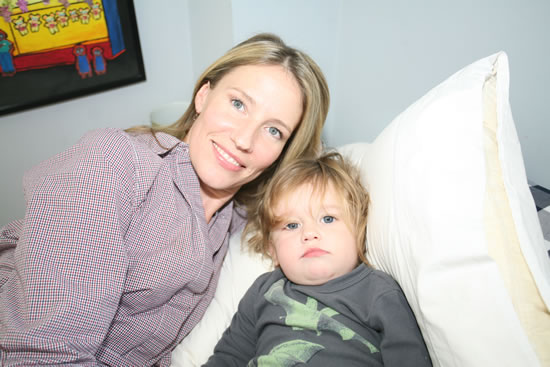WOMEN SHAPING HISTORY 2014
Jennifer Baumgardner:
The Feminist Press

What has inspired your current career path?
I’ve always loved books and I’ve been a feminist since birth, so having the opportunity to lead the Feminist Press fits right in with my interests and values, as well as my career thus far. I got my start at Ms. Magazine in the early 1990s, went on to be a writer for lots of mainstream magazines, from Glamour to Elle to Real Simple to Harper’s. I authored and co-authored several books about feminism, which enabled me to travel around the country speaking to college students and others about justice and activism.
What are some of the greatest challenges you’ve faced? How did you overcome them?
As a writer, my biggest challenge was believing that I had something to say that was worth killing a tree for. As a feminist writer, it is believing that my contribution to feminist theory and activism is as valuable as what came before and added to that movement. I overcame those barriers simply by doing the work. When I first sat down to write Manifesta with Amy Richards I felt insecure, inadequate, and confused about process of writing a book. At the end of two years, I had learned a lot about myself, publishing, feminist history, and what it means to make an argument and stand by it.
What are some of the accomplishments you are most proud of?
I’m proud that a book I wrote almost fifteen years ago (Manifesta) is still one of the most widely course-adopted feminist texts in the nation. I am proud that the two documentaries I’ve made have enabled me to have really moving, incredible conversations with hundreds and hundreds of people about abortion and sexual assault in their own lives.
Who have been the most influential mentors in your life?
Barbara Seaman, the women’s health leader, was the most hands-on mentor I’ve ever had. She exposed the dangers of the early birth control pill and was tireless in raising important questions that enabled women to take control over their healthcare. She mentored me both by really believing in me and by her example. Other people have informally mentored me—for instance, Helen Gurley Brown once said to me, “just keep moving things off your desk and move on to the next task” and it’s been a really helpful way for me to organize and not get too bogged down in details and torpor.
What would you describe as a turning point in your life?
When I got the internship at Ms. Magazine at age 22, it got me out of the Midwest and to New York. Once I got to NYC, everything changed really rapidly for me because it’s the kind of place where there are so many opportunities if you’re open to them. Another big turning point was leaving Ms. five years later. It had become a very comfortable but small place for me to develop and when I left and became a full time freelance writer I really came into my own because I could no longer stand on the Ms. brand—I had to understand my own value.
What are your goals for the future?
Well, my goal for the Feminist Press is to ensure its existence for the next decade. Using the platform of FP, I want to provide resources that end the use of the word “slut” to cover up for rape and other crimes against women and girls. I want to have more meaningful conversations about race within feminism. I want to continue to demonstrate that feminism is both a serious movement to radically change society and a really fun, positive, celebratory expression of love for oneself and others.#
